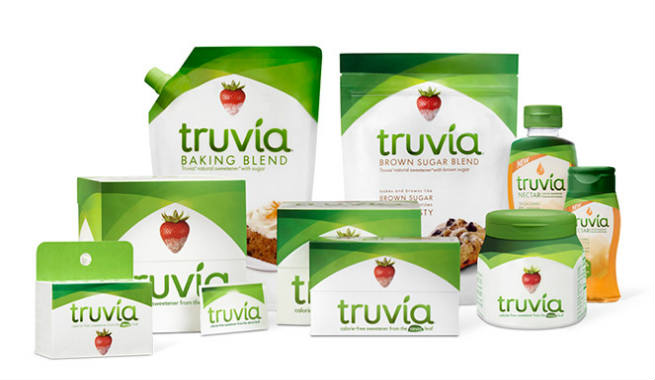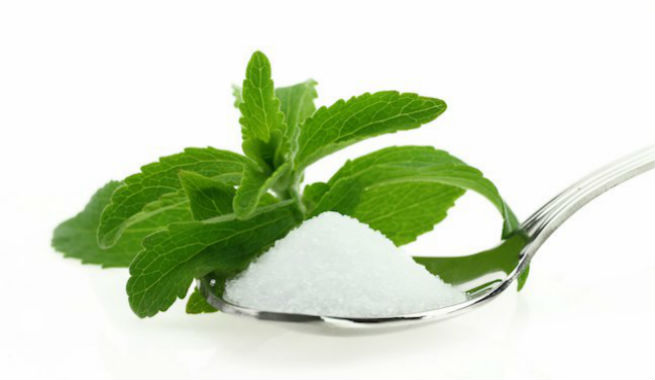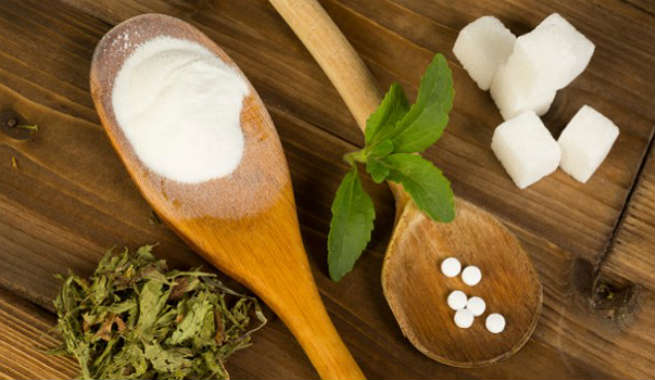An increasing number of individuals are swapping traditional sugar with artificial sweeteners in their diets, prompting a surge in the introduction of new sugar substitutes. Truvia, positioned as a natural sweetener with purported benefits for blood sugar control, prompts the question of its effectiveness. This post delves into the truth behind Truvia, seeking to determine if it lives up to its claims.
What Is Truvia?
‘Truvia’ is the brand name of a sugar substitute manufactured jointly by the Cargill Company and the Coca-Cola Company, two biggies in the worldwide food industry. It was launched in 2008 and marketed as a ‘zero-calorie all-natural sweetener.’ It looks exactly like regular table sugar and tastes almost the same. According to Truvia’s official website, the product is made of three ingredients: the leaf extract of the Stevia plant, the fermented sugar alcohol Erythritol, and natural flavors (not clarified). Truvia is known to be the ‘second best-selling sweetener in the US’ as of now.
Components Of Truvia
Let’s dig deeper into the component list of Truvia to know the product better:
- Erythritol: This sugar alcohol, prepared through the processing of ‘genetically modified corn,’ is the primary ingredient of Truvia. It is calorie-free and doesn’t get metabolized in our body. Though Erythritol is mainly absorbed by our cells, it goes out of the body through urination and doesn’t affect our blood sugar levels. However, a hefty dose of sugar alcohol might cause side effects like upset stomach, abdominal gas, bloating, cramping, diarrhea, etc.
- Rebaudioside A: Truvia contains only 0.5% of Rebaudioside A, derived from the Stevia plant by isolating the molecules from its sweetest part, ‘ ‘Rebiana.’ It is almost 400 times sweeter than table sugar, but being present in a minimal quantity in Truvia, it doesn’t taste that sweet.
- Natural Flavors: Although the Truvia website mentions ‘natural flavors’ as the third component of the product, no proper clarification is there.
Truvia And Stevia: Differences
There is a massive misconception that Truvia and Stevia are nothing but the same substances. Before proceeding with the pros and cons of the product, the idea should be made clear. Even though Truvia is advertised and marketed as a ‘stevia-based sugar substitute,’ it has ‘less than half a percent of stevia content.’ It is a highly processed sweetener with 99.9% pure Erythritol, which bears no resemblance in taste to stevia. The tiny amount of rebaudioside A present in Truvia also comes in a purified form, which imparts no positive effects on our health in any way.
Is Truvia Good For Health?
Here is the most critical question: is Truvia good for our health? Let’s see:
- Erythritol, the main component of Truvia, is a sugar alcohol, which is nothing but a ‘hybrid of carbohydrate and alcohol.’ It is prepared by processing corn into starch, fermenting it with yeast, and purifying the broth into crystals. The unique molecular structure of Erythritol makes it a substance with no calories (only 0.24 calories/gram), no toxicity, and no harmful metabolic effects like regular sugar. In short, this ingredient is safer and healthier than sugar.
- Being an almost zero-calorie sweetener, Truvia causes no significant weight gain in humans. Moreover, it does not negatively affect biomarkers like blood sugar, insulin, cholesterol, triglyceride, etc.
- Even though Truvia is not that toxic, it should be consumed in moderation. Several studies have revealed that using too much Truvia in a regular diet can lead to quite a few adverse effects, such as digestive distress, noisy stomach churning, diarrhea, cramping, bloating, abdominal gas, etc.
- The claim of Truvia being an ‘all-natural sweetener’ seems too good to be true. According to sources, ‘Rebiana’ is dissolved into some chemical solvents before being added to Erythritol, and the entire process of preparing Truvia takes as many as 42 steps. It is a highly processed product.
- Truvia’s ‘natural flavors’ are not defined on the product’s label. The manufacturer does not disclose how the flavors are created and whether they are really ‘natural’ or not. The ‘mystery’ makes us believe that the term’ natural flavors’ indicates ‘an assortment of chemical compounds’ that duplicate a natural flavor chemically.
In a nutshell, Truvia can act as a better alternative to table sugar if used wisely. It is neither a natural product nor entirely safe for use. As we don’t know the name and quantity of the chemicals added during its processing, we can’t consider it a 100% safe sugar substitute. Therefore, always take it in limited amounts so that you do not affect your health.
Summary
Truvia, a sugar substitute by Cargill and Coca-Cola, is marketed as a natural sweetener. Comprising Erythritol, a non-metabolized sugar alcohol, and minimal Stevia extract, it claims to be a healthier alternative. Erythritol’s unique structure makes it calorie-free and safe. However, excessive Truvia consumption can lead to digestive issues. Despite being touted as ‘all-natural,’ its complex 42-step manufacturing process raises concerns. Due to undisclosed processing details and potential side effects, Truvia is a potential sugar substitute but should be consumed cautiously.



